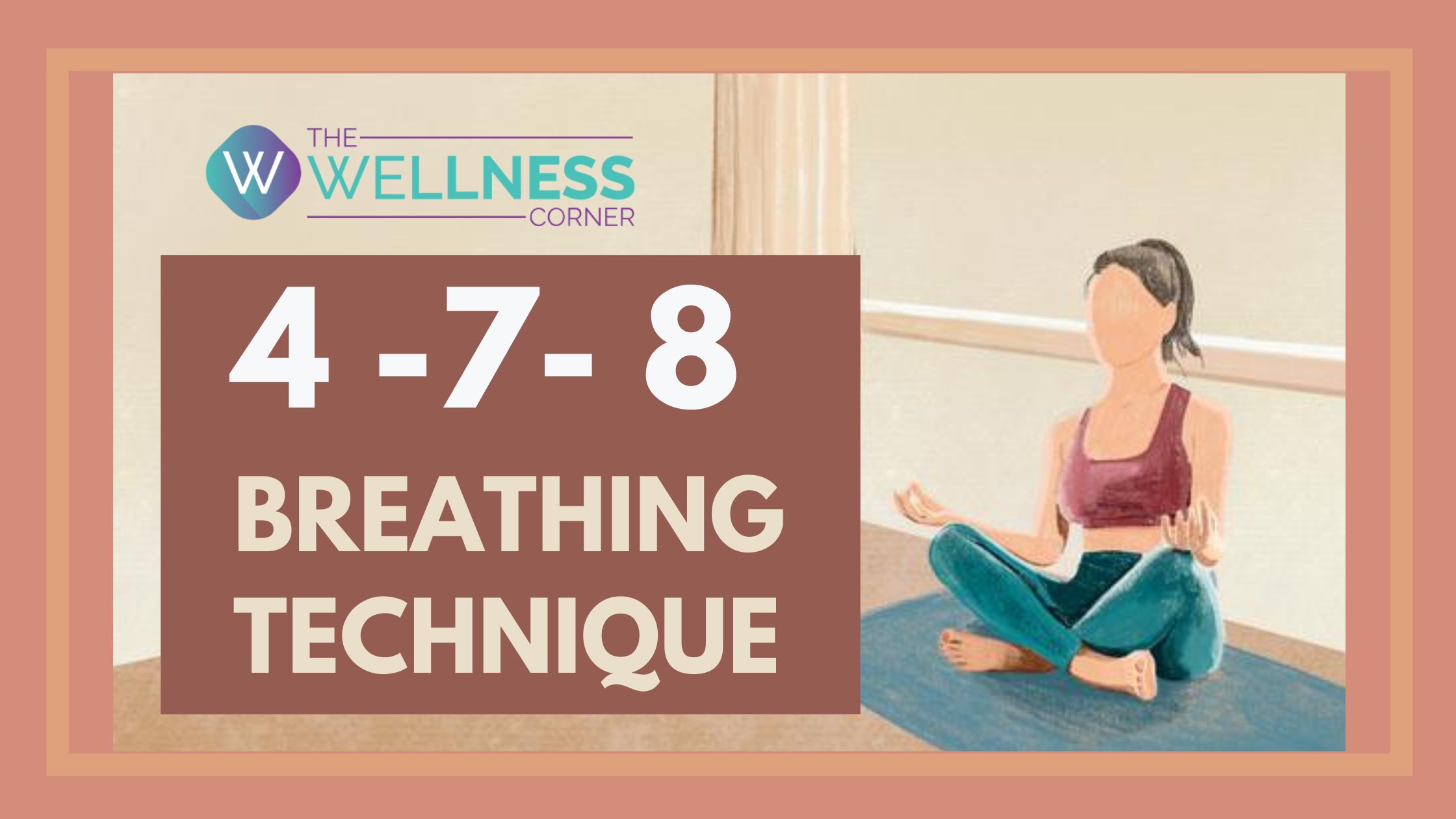4-7-8 Breathing Technique
- 27 days ago
When you consider “breathwork”, you are likely to think about the process of breathing—i.e. breathing in and breathing out. But what makes this process beneficial? Breathing is an essential activity as it circulates oxygen into your system, which works as fuel for the cells and stimulates the whole body.
Through breath control you can relax and calm your nervous system, which in turn regulates the heart, boosts digestion, and other functions in the body.
Dr. Andrew Weil discovered ‘4-7-8 breathing’, one of the most effective breathwork techniques inspired by the yogic pranayama. Let’s see what it is.
4-7-8 Breathing
4-7-8 Breathing, also called Relaxing Breaths, includes holding and exhaling breath for a set period of time. It is believed to help reduce stress and anxiety while helping people sleep better.
How to do it?
-Breathe in through your nose for 4 seconds.
-Hold your breath for 7 seconds.
-Exhale through your mouth for 8 seconds. (make a whoosh sound while doing so)
-Repeat the cycle 3 more times, totaling 4 breaths.
You may also like: Yoga Nidra: All That You Should Know About Yogic Sleep
Benefits of 4-7-8 breathing
- Elevates good mood
- Boosts the level of hemoglobin and improves the flow of blood
- Rejuvenated energy and improved immune health
- Promotes feelings of relaxation and an overall sense of well being
- Strengthens focus and concentration abilities
- Relieves stress
- Helps you attain good quality sleep
How often should you do it?
It will be best to do it twice a day. Beginners are advised not to over-practice it and do more than 4 breaths at a time. You can gradually increase it to 8 breaths but only after an adequate period of time. Some people may feel light-headed when practicing for the first time, know that it is okay to feel so and this shall pass.
You may also like: Yoga Asanas & Pranayama to Boost Your Immunity
Tips
- Let the tip of your tongue remain behind your upper front teeth, at the roof of your mouth throughout the exercise.
- Sit with your back straight, if possible
- Make a whoosh sound when exhaling from the mouth but inhale silently while breathing in through the nose.
- Exhale slowly such that it takes twice the time of inhaling
- It is not important to focus on the time spent on each phase rather maintaining the ratio of 4:7:8 is.
- Practice slowing down the process of inhaling and exhaling and get used to deep breathing with time.
Nutshell
The power of breathing techniques has been known in India for thousands of years. Any type of quality yoga combines two powerful elements of breathing and stretching. Breathing is the only essential body function performed unconsciously that can be controlled consciously. Perform yoga regularly to connect the mind and body and get ready to witness a number of health benefits.
When your stress and anxiety levels are beyond what you can handle with any meditation, it will be best to see an expert. Consult a doctor online on The Wellness Corner via chat/audio/video call or a professional therapist if the root cause is emotionally inclined.








